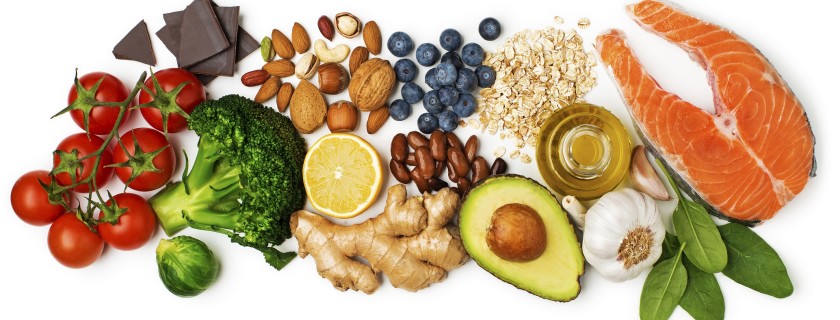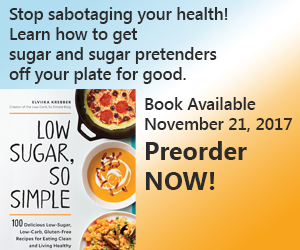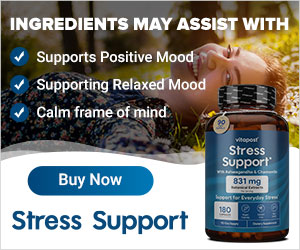If you’re suffering from anxiety, you’re not alone. Over 40 million adults suffer from some kind of anxiety disorder in the United States alone.
There are a number of ways people try and manage their anxiety. You can try meditation, exercise, therapy, medication, and other self-help solutions. One perhaps surprising thing that can help with anxiety is eating.
The instinct is to go for fatty, sugary comfort foods like ice cream, french fries, and alcohol. These types of foods, however, can actually make anxiety worse.
We are going to go over 10 foods that help with anxiety. These healthy foods will make you feel better both in terms of your anxiety as well as your overall nutritional health.
1. Chamomile
Chamomile is an herb that you won’t find in too many foods, per se, but it’s technically a food, so it makes our list. It mostly makes the cut because it is such a well-known stress and anxiety reliever, and because it’s delicious.
You’ll most often find it as a component of herbal teas. Chamomile has a high concentration of antioxidants, which have been shown to have anxiety relieving properties.
Antioxidants can also help reduce inflammation. Reducing inflammation has also been shown to help reduce general anxiety.
Numerous scientific studies show how effective chamomile is at reducing anxiety and anxiety symptoms.
One study examined patients diagnosed with generalized anxiety disorder (GAD). They found that patients consuming chamomile had a significant reduction in their anxiety symptoms compared to those not consuming chamomile.
Try replacing your morning coffee with a steaming mug of chamomile tea. Ditching coffee is a good idea anyway since caffeine can make anxiety worse. You could also try having a nice cup of sleepytime tea with chamomile before bed to get those calming effects before you go to sleep.
2. Avocado
The avocado craze isn’t just for millennials and people with over 5000 followers on Instagram. Not only can avocado provide great healthy fats and make any sandwich better (except maybe PB&J), but it’s also one of the best foods for anxiety.
Avocados are high in B vitamins. That might seem irrelevant, but studies have shown that deficiency in B vitamins is directly linked to mental health disorders like anxiety and depression.
Getting your fix of B vitamins via avocado can help reduce your risk of anxiety caused by a deficiency.
3. Blueberries
Blueberries have one of the highest concentrations of antioxidants in any fruit. We already mention the power that antioxidants have for fighting anxiety, which makes blueberries a great food to add to an anxiety diet.
Besides antioxidants, blueberries have large amounts of vitamin C, vitamin K, and manganese.
When we are stressed, our cells are also stressed. This can lead to further and exacerbated anxiety symptoms over time. The nutrients and vitamins packed into these little berries are excellent at repairing any cellular damage caused by stress, which can help reduce physical stress overall.
The great thing about blueberries is they’re easily incorporated into your diet. You can throw them into smoothies, on top of yogurt, or just snack on them by themselves!
4. Almonds
Like avocado, almonds are rich in B vitamins. B vitamins are responsible for maintaining brain and nerve health. Supplementing your diet with foods rich in these vitamins, like almonds, ensures your brain is getting what it needs to work properly and fight anxiety symptoms.
Almonds are also a great source of E. Vitamin E will help boost your immune system, which helps your body handle stress more effectively.
Try grabbing a handful of almost as a midday snack, or spreading some almond butter on toast or apple slices.
5. Chocolate
Now, this is probably more what you were thinking when it comes to foods that reduce anxiety. Who hasn’t reached for a chocolate bar after a bad day?
But the catch here is that you should reach for dark chocolate instead of the highly processed, sugary milk chocolate people usually reach for.
Dark chocolate contains molecules called flavonoids. These are a particular type of antioxidant that are known to help reduce stress and protect your brain’s health.
Scientists believe that the chemicals in dark chocolate are able to increase blood flow and circulation to your brain. It’s thought that this increase in blood flow can help your brain function better during times of stress and learn how to adapt to stressors better.
Chocolate can also increase the amount of serotonin in your brain. Serotonin is one of the “happy” molecules in your brain. Low levels of serotonin are associated with anxiety and depression; elevating those levels with some chocolate can help reduce anxiety.
Not to mention that this gives you an excuse to eat extra chocolate.
6. Spinach
Spinach gets a bad reputation when we’re kids, but we should follow Popeye’s example and toss it down the hatch. Spinach is packed with magnesium, which is known for its calming effect.
When we’re stressed, a hormone called cortisol builds up in our body. This puts our body and cells into “stress” mode, which can cause a lot of damage and anxiety symptoms.
The magnesium in spinach can help reduce cortisol levels. It’s even been shown to directly help reduce anxiety in scientific trials.
If spinach salads don’t sound great to you, that’s ok. There are plenty of recipes that involve spinach so you can still get it in your diet without having to taste is all that much. Toss it into an omelet, a green smoothie, or steam it as a side dish.
7. Turmeric
Similar to chamomile, you won’t directly eat turmeric. Turmeric is a spice that’s found in many Indian dishes.
What’s special about turmeric is that is contains something called curcumin. Curcumin has been shown to reduce symptoms of anxiety in multiple different scientific studies.
Not only can it help reduce anxiety, but it’s also thought to be able to prevent people from developing anxiety in the first place.
Turmeric and curcumin are also powerful anti-inflammatories and antioxidants. As we’ve mentioned before, both of these properties can help reduce anxiety and anxiety symptoms.
Curcumin is also able to reduce the cytokines in your body. High levels of cytokines can worsen anxiety; reducing them by consuming turmeric can, thus, reduce your anxiety.
Turmeric doesn’t have a strong flavor, so it can be easily incorporated into many foods. It goes well in curries and stir-frys. There are even turmeric lattes if you’re feeling brave.
8. Salmon
If you’re looking for the “meat” of the meal, look no further than salmon. Salmon contains natural and healthy fats in the form of omega-3s along with vitamin D. Both of these nutrients can produce calming effects as well as help reduce existing anxiety.
The fats in salmon help regulate both serotonin and dopamine. Maintaining normal levels of these two neurotransmitters helps reduce symptoms anxiety and depression; providing your brain with the fats it needs to regulate these molecules is crucial if you want to reduce your anxiety.
Vitamin D can also help on this front: studies show it’s also responsible for neurotransmitter regulation and brain health.
9. Maca Root
While this isn’t as popular or as well known as some of the other things on this list, maca root is a great supplement for anxiety. You can find it in most health food stores or supplement websites.
With its high magnesium and iron content, it’s able to reduce cortisol levels in your body to help reduce stress. It’s mostly found in powder form added to smoothies, milkshakes, or into hot beverages.
10. Asparagus
Asparagus is not only delicious (grilled asparagus on a warm summer night? Heavenly.), but it’s also one vegetable that has high amounts of folic acid.
Folic acid is a type of vitamin B, specifically vitamin B9. We’ve already gone over how B vitamins are beneficial for reducing anxiety, but let’s look specifically at folic acid.
Our bodies don’t synthesize folic acid, so it must be consumed in our diet. Folic acid is responsible for DNA repair and replication. During times of stress, especially with constant anxiety, our cells and our DNA is prone to damage.
Getting enough folic acid, through foods like asparagus, will ensure that our bodies can handle stress and repair damage caused by anxiety. Folic acid supplementation has been shown to significantly reduce anxiety symptoms in people with anxiety disorders.
Top 10 Foods That Help with Anxiety
Anxiety is hard to manage, especially when it affects your everyday life. Accepting you have anxiety and wanting to take steps to manage it is an important step in the right direction.
Hopefully adding some, or all, of these foods that help with anxiety into your diet can help you reduce some feelings and symptoms of anxiety that you’re experiencing.
If you want some other advice on how to reduce your anxiety, check out our other articles. We give you some tips on how to handle your anxiety, and what you can do to reduce your symptoms.






